The University of Chicago Press, Chicago 60637
The University of Chicago Press, Ltd., London
2019 by The University of Chicago
All rights reserved. No part of this book may be used or reproduced in any manner whatsoever without written permission, except in the case of brief quotations in critical articles and reviews. For more information, contact the University of Chicago Press, 1427 E. 60th St., Chicago, IL 60637.
Published 2019
Printed in the United States of America
28 27 26 25 24 23 22 21 20 19 1 2 3 4 5
ISBN -13: 978-0-226-62160-9 (cloth)
ISBN -13: 978-0-226-62174-6 (paper)
ISBN -13: 978-0-226-62188-3 (e-book)
DOI : https://doi.org/10.7208/chicago/9780226621883.001.0001
Library of Congress Cataloging-in-Publication Data
Names: Potter, Rachel Augustine, author.
Title: Bending the rules : procedural politicking in the bureaucracy / Rachel Augustine Potter.
Description: Chicago : The University of Chicago Press, 2019. | Includes bibliographical references and index.
Identifiers: LCCN 2018051858 | ISBN 9780226621609 (cloth : alk. paper) | ISBN 9780226621746 (pbk. : alk. paper) | ISBN 9780226621883 (e-book)
Subjects: LCSH: Administrative procedureUnited States. | Administrative procedurePolitical aspectsUnited States. | Administrative agenciesUnited StatesRules and practice.
Classification: LCC KF5411 .P68 2019 | DDC 342.73/06dc23
LC record available at https://lccn.loc.gov/2018051858

This paper meets the requirements of ANSI/NISO Z 39.48-1992 (Permanence of Paper).
I am so very glad to be done writing this book. It truly has been a labor of love andas is often the case with long projectssometimes a cross to bear. I once heard an author describe his experience of writing a book along the lines of words just flying onto the page. That has not been my experience; instead, what you are reading is the accumulation of numerous long nights, myriad weekend hours, and too many cups of coffee to count. My hope is that all of this writing and rewriting, thinking and rethinking, editing and reediting, makes for a better-reasoned and more enjoyable final product for you, the reader.
I would be remiss if I did not alert you, dear reader, of my own bias in writing this book. From 2005 to 2007, I worked as a policy analyst at the White House Office of Information and Regulatory Affairs, an institution that figures prominently in the books analysis. In this role, I became steeped in the rulemaking process and interacted with dozens of officials in the Executive Office of the President and bureaucrats in a host of federal agencies. Through this experience, I became deeply convinced of the talent and competence of career civil servants and political appointees across the federal bureaucracy. Those who view bureaucrats as paper pushers or slackers may well be put off, but I cannot help but see these individuals as smart and strategic; that belief shines through clearly in the pages that follow.
With that disclaimer out of the way, I turn to the task of giving credit where it is due. Many people have shaped this into a better project and saved it from being too solitary an endeavor. The project began at the University of Michigan, where I benefited tremendously from the counsel of Jowei Chen, Rick Hall, Ken Kollman, and Chuck Shipan. Chuck, in particular, has provided feedback on multiple drafts, offered career advice, and been an all-star mentor and human being. My colleagues at the University of Virginia have been unfailingly supportive in reading chapters and offering advice about the publishing process. I have been lucky to work with Jeff Jenkins, David Klein, Jon Kropko, Gabi Kruks-Wisner, David Leblang, Anne Meng, Sid Milkis, and Craig Volden, each of whom provided feedback on how to improve this book.
Outside of my home institutions, I have benefited from the generosity of many friends and colleagues in political science and beyond. Graeme Boushey, Greg Huber, George Krause, Molly Reynolds, Janna Rezaee, and Alan Wiseman all read portions of this book and provided useful feedback. Chuck Myers and Holly Smith at the University of Chicago Press have been both encouraging and patient. I am also thankful for the contributions of Madhura Bhat, Julia Gray, Andrew Kerner, Alison Roth-Kerner, the Augustines, and the Potters. Seminar audiences at Emory University, Georgetown University, Princeton University, Texas A&M University, Vanderbilt University, the University of Houston, and the University of Texas at Austin all asked incisive questions and helped me to think through different aspects of the project. Portions of the project were also presented at the National Capital Area Political Science Association American Politics Workshop at George Washington University, the Separation of Powers Conference at the University of Georgia, and various association conferences. Additionally, the undergraduate students in my Introduction to Public Administration course in the fall of 2016 read and gave feedback on how to make it more accessible.
In the early stages of the project, I received financial support from the Horowitz Foundation for Social Policy and later on from the Bankard Fund for Political Economy at UVA. I also benefited from the work of an army of research assistants who helped assemble the data for this book; for their service, I am indebted to Bennie Ashton, Kim Ganczak, Nick Jacobs, Erica Liao, Kal Munis, Steven Riley, Ata Seck, Ilana Shapiro, Ricky Williams, and Connor Wood. Jason MacDonald generously offered his data on limitation riders, which informs the analysis in .
Last, but certainly not least, this book is dedicated to my three most favorite people on this planet, each of whom weathered the storm of this book with remarkable aplomb. My husband, Phil, has been my devoted partner and best friend going on twenty years. Given his dry sense of humor and penchant for sarcasm, cheerleader seems ill fitting, but I can think of no better description of his unflagging enthusiasm for this book. My daughters, Hazel and Dorothy, have each contributed in their own way to the completion of this project. Hazel offered well-timed hugs and constructive criticism (page numbers are important, after all). Dorothys impending arrival compelled the completion of the last chapters, and her subsequent debut has made our family complete. Team Potter inspires me to be a better wife, mother, scholar, and person each and every day. For thatand so much moreI am endlessly grateful.

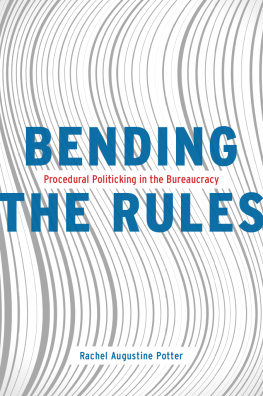

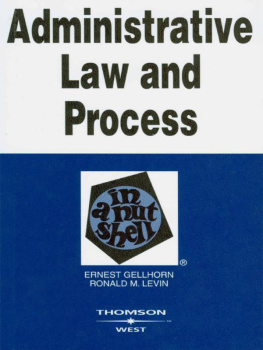
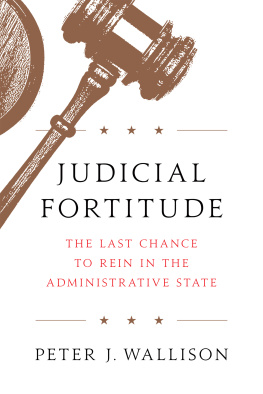
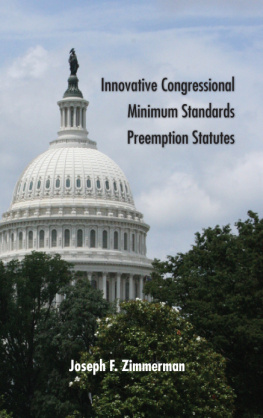
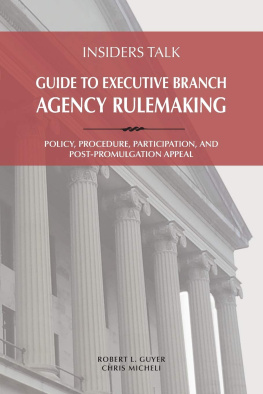
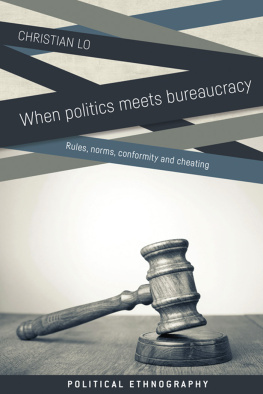
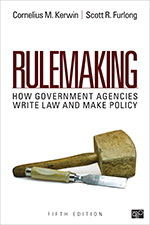
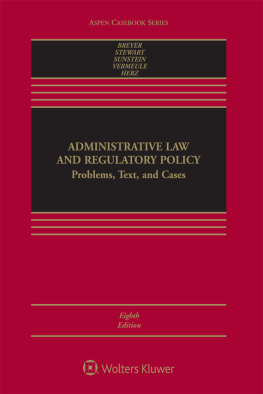
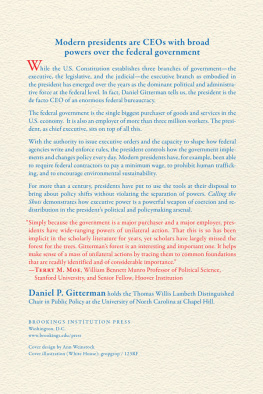
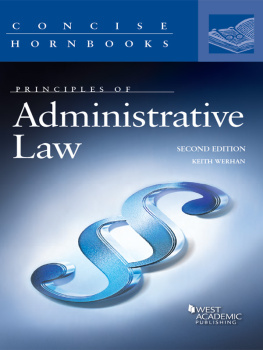
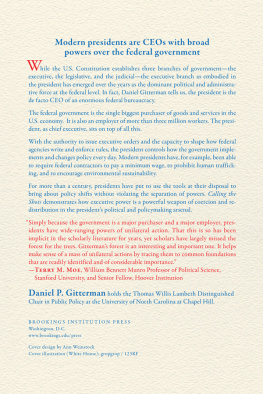
 This paper meets the requirements of ANSI/NISO Z 39.48-1992 (Permanence of Paper).
This paper meets the requirements of ANSI/NISO Z 39.48-1992 (Permanence of Paper).